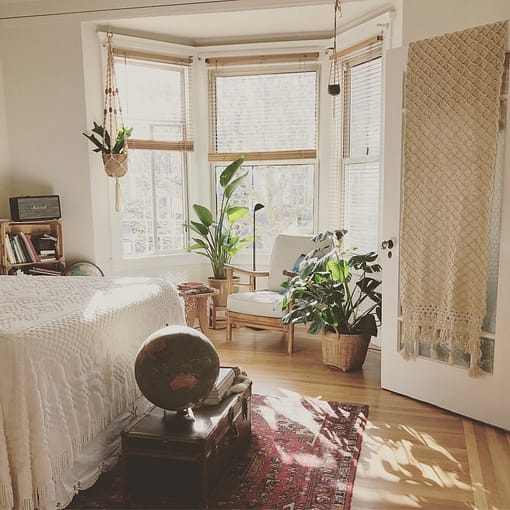Are you ready to embark on a DIY project but find yourself overwhelmed by the endless possibilities? Choosing the right DIY project can be challenging, especially when you’re unsure of where to begin. With “How Do I Choose The Right DIY Project For Me?”, we’ve got you covered. This user-friendly guide will provide you with valuable tips and insights on how to navigate the vast world of DIY projects, helping you find the perfect one for your skills and interests. Whether you’re a seasoned DIY enthusiast or just getting started, this article is your go-to resource for finding the ideal project that will bring satisfaction and joy to your life.

Consider your interests and skills
Assess your interests
When it comes to selecting a DIY project, it is important to assess your interests. Consider what hobbies or activities you enjoy in your free time. Do you have a passion for woodworking? Are you interested in home decor or gardening? By identifying your interests, you can choose a project that aligns with your passions and keeps you engaged throughout the process. Remember, it’s crucial to choose a project that you find interesting and enjoyable, as this will increase your motivation and satisfaction.
Evaluate your skills
Alongside your interests, it’s essential to evaluate your skills before diving into a DIY project. Be honest with yourself about your level of expertise and experience in various areas. Are you a seasoned DIY enthusiast with advanced skills, or are you just starting out? Assessing your skill level allows you to choose a project that matches your abilities. Starting with a project that is too complex can lead to frustration and potentially discourage you from future DIY endeavors. Conversely, selecting a project that aligns with your current skill level will boost your confidence and ensure a successful outcome.
Determine your available time and resources
Assess your time availability
Before embarking on a DIY project, it is crucial to assess your time availability. Consider your daily routine, work commitments, and personal responsibilities. DIY projects can vary in terms of the time investment required, so it’s important to choose a project that fits within your schedule. Be realistic about the amount of time you can dedicate to the project. Starting a project that demands extensive time commitments when you have limited availability could result in unnecessary stress and unfinished work.
Evaluate your budget and resources
In addition to time, it is essential to evaluate your budget and available resources. Consider the financial aspects of your chosen project. Research the cost of materials, tools, and any additional resources required. Assess whether your budget allows for these expenses or if you need to adjust your project accordingly. It is also important to consider the resources you already have at your disposal. Do you have access to a workshop or a friend who can lend you tools? By evaluating your budget and resources, you can make informed decisions and ensure a smooth and financially feasible DIY project.
Set realistic goals
Identify your objectives
Setting realistic goals is crucial in ensuring a successful DIY project. Take some time to identify your objectives and what you hope to accomplish through your project. Do you want to build a piece of furniture, renovate a particular room, or enhance your outdoor living space? Clearly defining your objectives will provide you with a sense of direction and help you stay focused throughout the project. These goals will serve as a constant reminder of what you are working towards and keep you motivated during challenging moments.
Break down the project into manageable tasks
Once you’ve identified your objectives, it is important to break down the project into manageable tasks. By breaking the project into smaller segments, you can tackle the project step by step, making it less overwhelming. Consider the sequence of tasks and the logical order in which they should be completed. This will ensure that each task is approached methodically and that you maintain a smooth workflow. Breaking down the project also allows you to allocate time and resources efficiently for each task, enabling better time management.
Assess the level of difficulty
Consider your skill level
When choosing a DIY project, it is crucial to consider the level of difficulty, taking into account your own skill level. If you are just starting, opt for projects that align with your current abilities to prevent frustration and discouragement. Over time, as you gain more experience and build confidence, you can gradually take on more challenging projects. Remember, it’s perfectly fine to start small and work your way up. This approach will not only ensure success but also provide opportunities for learning and growth.
Research the complexity of the project
In addition to considering your skill level, it is important to research the complexity of the project you have in mind. Take the time to thoroughly understand the steps and techniques involved. Consult online resources, such as tutorials and forums, to gain insights from experienced DIYers who have undertaken similar projects. By conducting proper analysis and research, you’ll gain a realistic understanding of the project’s complexity and the skills required. This will help you determine if you are ready to take it on or if it is better to choose a project that is more aligned with your current abilities.

Evaluate the required tools and materials
List the necessary tools
Before starting any DIY project, it is crucial to evaluate and list the necessary tools. Take into account the specific requirements of your chosen project and ensure you have access to the appropriate tools. Consider whether you already own any of the needed tools or if you will need to purchase or borrow them. Make a comprehensive list of the tools required and cross-reference it with your existing collection. Having the right tools on hand is essential for executing your project effectively and achieving the desired results.
Research the cost and availability of materials
In addition to tools, it is important to research the cost and availability of materials required for your DIY project. Depending on the nature of the project, you may need to purchase wood, paint, screws, or other materials. Take the time to research prices and compare them across different suppliers to find the best possible deals. Additionally, consider the availability of materials. If certain materials are rare or difficult to source, it may significantly impact the feasibility and timeline of your project. Thorough research and planning will ensure that you have all the necessary materials at the right time, without exceeding your budget.
Consider the space and environment
Evaluate the available workspace
Before diving into a DIY project, it is important to assess your available workspace. Evaluate the area you have designated for your project and ensure it is suitable for the type of project you are undertaking. If you are working on larger projects, such as furniture construction or room renovations, you will need ample space to accommodate the necessary tools and materials. Ensure that your workspace is well organized and designed to facilitate efficient and safe work. A clutter-free and properly equipped workspace will contribute to a smoother project execution and an enjoyable DIY experience.
Consider the impact on your surroundings
While evaluating your workspace, it is also essential to consider the impact your DIY project may have on your surroundings. Think about potential noise, dust, and debris that may be generated during the project. If your workspace is located in a shared living space, consider how your project may affect others in your household. Communicate with family members or roommates and ensure that they are aware of your plans. Taking their needs into account will help avoid any conflicts and ensure a harmonious environment for everyone involved.
Research and gather inspiration
Browse DIY websites and blogs
To choose the right DIY project, it is always beneficial to gather inspiration from various sources. Browse through DIY websites, blogs, and social media platforms dedicated to DIY enthusiasts. These platforms provide a wealth of ideas, tutorials, and step-by-step guides that can spark your creativity. Explore different categories, including woodworking, home decor, gardening, and more, to find projects that align with your interests and skill level. Gathering inspiration from experienced DIYers’ work will not only help you find the right project but also provide insights and tips for successful execution.
Visit home improvement stores for ideas
Another great way to gather inspiration for your DIY project is to visit home improvement stores. Take the time to stroll through the aisles and explore the various sections dedicated to construction materials, paints, tools, and accessories. Many stores have displays showcasing finished projects or sample designs that can ignite your creativity. By physically experiencing the materials and visualizing how they can be utilized, you can gain a clearer vision of what project you would like to undertake. Don’t hesitate to ask store staff for advice or recommendations based on your interests and skill level.
Seek guidance and advice
Consult with experienced DIYers
If you’re feeling uncertain or have specific questions about a DIY project, it is always beneficial to consult with experienced DIYers. Seek out friends, family members, or colleagues who have experience in the area you are interested in. They can provide guidance, share their own experiences, and offer valuable tips and tricks. Consultation with experienced individuals can help you overcome challenges, avoid common mistakes, and gain insights into the best practices for a successful DIY project. Their firsthand knowledge can empower you to make informed decisions and enhance your overall DIY skills.
Join online communities for support
In addition to seeking advice from individuals you know, consider joining online communities dedicated to DIY enthusiasts. Participating in forums, message boards, or social media groups allows you to connect with like-minded individuals who share a passion for DIY projects. These communities provide a platform for sharing experiences, seeking advice, and receiving support. You can post questions, share progress, and even showcase your finished projects. The support and encouragement from these communities can be invaluable, especially during challenging moments or when you’re looking for inspiration for your next project.
Start with small projects
Begin with simple and manageable tasks
Starting your DIY journey with small projects is an excellent way to build confidence and gain experience. Begin with simple and manageable tasks that align with your interests and skill level. These could include creating a small wooden shelf, repainting a piece of furniture, or building a raised garden bed. By tackling smaller projects first, you can develop your DIY skills, familiarize yourself with different techniques, and build a foundation of knowledge. As you complete these projects successfully, you’ll be more prepared to take on larger and more complex projects in the future.
Gain confidence and experience
As you continue to complete small projects, you will gain confidence in your abilities and develop a sense of accomplishment. Each successful project will enhance your DIY skills and expand your knowledge base. Embrace the learning process and use each project as an opportunity to grow and refine your skills. Celebrate your achievements and acknowledge the progress you’ve made along the way. The combination of hands-on experience and a growing portfolio of completed projects will give you the confidence to take on more challenging DIY endeavors in the future.
Evaluate the potential for learning and growth
Consider the skills you can acquire
Choosing the right DIY project goes beyond immediate satisfaction; it should present an opportunity for learning and growth. Consider the skills you can acquire or enhance through your chosen project. For example, woodworking projects can improve your precision and carpentry skills, while plumbing projects can develop your problem-solving abilities. Each project presents unique challenges and learning opportunities. By undertaking projects that offer room for skill development, you can continuously improve your DIY repertoire and apply new knowledge to future projects.
Assess the long-term benefits of the project
In addition to the immediate joy of completing a DIY project, it is important to assess the long-term benefits it may offer. Some projects, such as attic insulation or energy-efficient upgrades, can provide long-term savings and environmental benefits. Others, like creating a personalized home decor piece, can add a unique touch to your living space and enhance your enjoyment of it. Evaluate how your chosen project aligns with your long-term goals, whether they be financial, lifestyle-oriented, or personal. Understanding these potential benefits will provide an extra layer of motivation and satisfaction as you embark on your DIY journey.
By considering your interests, skills, available time and resources, setting realistic goals, and assessing the level of difficulty, you can confidently choose the right DIY project for yourself. Evaluating the required tools and materials, considering the space and environment, and researching and gathering inspiration will ensure a successful and enjoyable DIY experience. Seek guidance and advice from experienced DIYers, start with small projects to gain confidence, and evaluate the potential for learning and growth. Remember, choosing the right DIY project is a journey of self-discovery, creativity, and personal fulfillment. Embrace the process and enjoy the satisfaction of bringing your ideas to life through your own craftsmanship. Happy DIYing!













